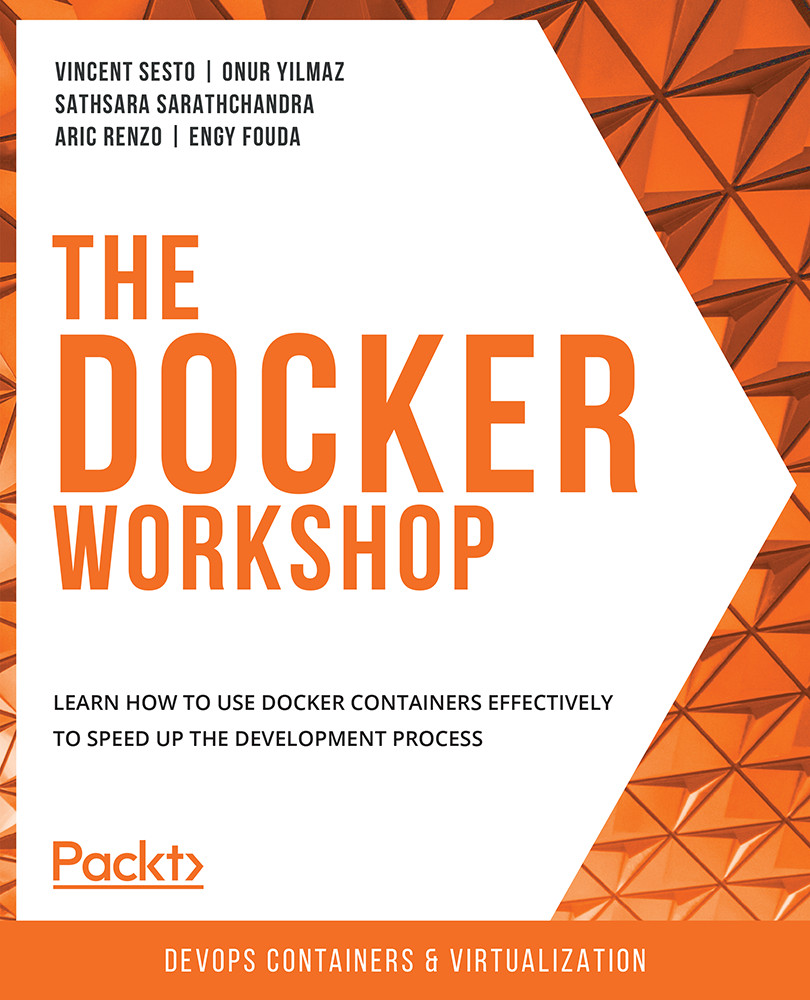-
Book Overview & Buying

-
Table Of Contents

The Docker Workshop
By :

The Docker Workshop
By:
Overview of this book
 Free Chapter
Free Chapter
 Sign In
Start Free Trial
Sign In
Start Free Trial


 Free Chapter
Free Chapter
As we've been working with our tags, we've mentioned a few times not to use the latest tag, which is provided by Docker as a default tag. As you will see shortly, using the latest tag can cause a lot of issues, especially if you're deploying images into production environments.
The first thing we need to realize is that latest is simply a tag, just as we were using ver_1 in our previous example. It definitely does not mean the latest version of our code either. It simply means the most recent build of our image, which did not include a tag.
Using the latest will also cause a lot of issues in large teams, deploying to environments multiple times a day. It also means you will have no history, which makes rolling back bad changes difficult. So, remember that every time you build or pull an image if you don't specify a tag, Docker will use the latest tag and will not do anything to ensure the image is the most up-to-date version...
